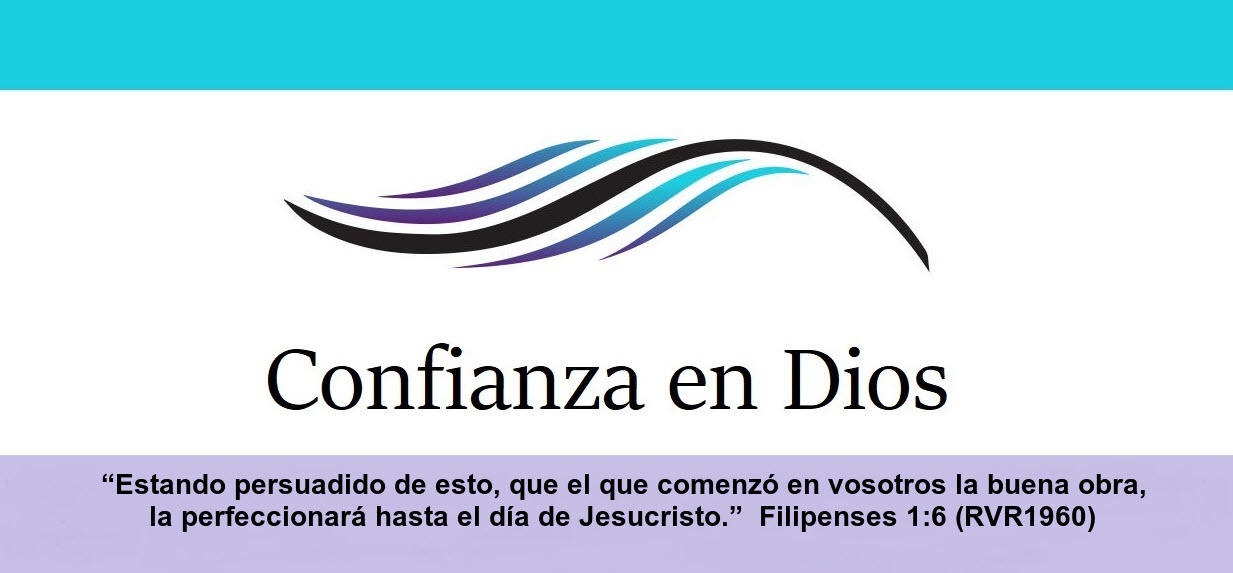¿La Palabra de Dios que Tiene en Su Mano es Verdadera o es la Verdad?
Encontramos Libertad y Estabilidad Cuando Sabemos que la Palabra es Verdad

Mientras criaba a mis tres hijos, me esforcé por inculcarles el amor a Dios y a Su Palabra. Como la mayoría de los niños, cuando llegaron a la adolescencia, comenzaron a desafiar algunas de las enseñanzas de la Biblia. Por ejemplo, sabían que según Filipenses 4:8 debían limitar las cosas que veían o leían a aquellas que son verdaderas, honestas, justas, puras, amables, de buena reputación, virtuosas y dignas de alabanza. Sin embargo, a menudo querían ver películas populares que podían ser muy violentas, contener escenas sexuales gráficas y promover relaciones físicas fuera de los límites amorosos establecidos en la Palabra de Dios. Creían que la Palabra de Dios era verdadera, pero ¿la aceptaban como la verdad?
Somos muy afortunados de poder tener la Palabra de Dios en nuestras manos y poder leerla y estudiarla. Pero ¿la aceptamos como verdadera, o como verdad?
What is the difference between “true” and “truth”? Is it just that “true” is an adjective and “truth” is a noun? Consider how Graham Cooke, a blogger on BrilliantPerspectives.com ((https://brilliantperspectives.com/?s=There+is+always+a+higher+level+of+truth, recuperado el 4 de mayo de 2021).
Siempre hay un nivel de verdad superior a los hechos. Esta es la diferencia entre lo que es verdadero y lo que es la verdad.
A negative mindset can easily state the facts, establishing your inability. “I can’t do it. I’m no good. It’s too big. We are not strong enough. We are not big enough. We are not powerful enough. We feel like grasshoppers in our own sight.”
Estas afirmaciones pueden ser ciertas en el momento que las decimos, especialmente antes de haber recibido la salvación por medio de Jesucristo. Y pueden seguir siendo muy ciertas en nuestra propia percepción. Pero considere lo que el señor Cooke explica como la verdad.
La verdad es que usted tiene una nueva naturaleza. ¡Comience a confesar de acuerdo con esa verdad!
I can do all things through Christ who strengthens me, who empowers me, who enables me. There isn’t anything I can’t learn, and there isn’t anything I can’t do with the help of the Holy Spirit.
According to Janice Bastani Coaching, “The word VERDADERO es su perspectiva de algo. La palabra VERDAD is universal and cannot be changed.” (https://www.janicebastanicoaching.com/true-vs-truth/, recuperado el 4 de mayo de 2021.) Esto coincide bastante con lo que declaró el señor Cooke. Esas declaraciones que utilizó como ejemplo de lo que es verdad (“I can’t do it. I’m no good. It’s too big. We are not strong enough. We are not big enough. We are not powerful enough. We feel like grasshoppers in our own sight.”) is the speaker’s perspective at the moment he or she spoke the statements. However, the truth as shared by Mr. Cooke (“I can do all things through Christ who strengthens me, who empowers me, who enables me. There isn’t anything I can’t learn, and there isn’t anything I can’t do with the help of the Holy Spirit.”) es universal para todos los cristianos y no se puede cambiar.
Como cristianos, sabemos que debemos pensar en las cosas que son verdaderas, como enseñó el apóstol Pablo en Filipenses 4:8. Entonces, consideremos cómo ciertas personas en las Escrituras veían a Jesús.
Discípulos de los Fariseos y Herodianos

Como se registra en Mateo 22:15-16, los fariseos enviaron a sus discípulos, junto con los herodianos, con Jesús y ellos proclamaban la creencia de que Jesús es verdadero, aunque lo hacían fingidamente porque los fariseos estaban tratando de atrapar a Jesús con Sus propias palabras. Antes de pedirle a Jesús que les dijera si era lícito pagar tributo al César, proclamaron, “Maestro, sabemos que eres amante de la verdad, y que enseñas con verdad el camino de Dios, y que no te cuidas de nadie, porque no miras la apariencia de los hombres.” (Mateo 22:16.)
Este es un ejemplo de los discípulos de los fariseos y los herodianos declarando a Jesús como verdadero, pero no viendo a Jesús como la verdad. Lo declararon desde su percepción en ese momento, pero no lo vieron como una verdad universal que no está sujeta a cambios.
The Apostle John’s Teaching
En Juan 3:31-36, el apóstol Juan enseñó a sus discípulos sobre la aceptación de Dios como verdad. La Biblia en su Versión Amplificada aclara en el versículo 33 que una persona que acepta el testimonio de Jesús está segura de la verdad de Dios: “Quien recibe Su testimonio ha puesto su sello de aprobación a esto: Dios es verdadero. (Ese hombre definitivamente ha certificado, ha reconocido, ha declarado de una vez por todas, y él mismo está seguro de que es verdad divina que Dios no puede mentir).” [Traducción literal de The Amplified Bible, dicha traducción de la Biblia no se encuentra disponible en español.] En el versículo 36, Juan explica que hay dos maneras de reaccionar a las enseñanzas de Jesús. “El que cree en el Hijo tiene vida eterna; pero el que se rehúsa a creer en el Hijo no verá la vida, sino que la ira de Dios está sobre él.”
Cada persona puede reaccionar a las enseñanzas de Jesús de una de las siguientes formas: 1) creyéndolas y aceptándolas como verdad, lo cual lleva a la vida eterna; o 2) no creyéndolas ni aceptándolas, lo cual conlleva a la ira de Dios.
¿Hay un Punto Medio?

¿Hay un punto medio? ¿Podemos aceptar a Dios y Su palabra como la verdad y, sin embargo, aplicar dicha verdad a nuestras vidas de manera inconsistente, como:
- Escogiendo ciertas partes de Su Palabra para vivirlas, considerando otras partes de Su Palabra como no relevantes para nuestra vida; o
- Applying certain parts of God’s Word in certain circumstances but not applying it to other circumstances?
Si estamos escogiendo ciertas partes de la Palabra de Dios como dignas de ser vividas, o aplicando sólo ciertas partes de Su palabra en ciertas circunstancias, entonces estamos creyendo que la Palabra de Dios es verdadera, pero no la estamos aceptando como verdad.
Recuerde, si creemos que es verdadera pero no la verdad, entonces creemos que es verdad sólo cuando la percibimos como tal, lo cual es a menudo cuando es conveniente o cuando estamos en situaciones desesperadas y necesitamos que sea verdad. Si creemos que la Palabra de Dios es la verdad, entonces podemos apoyarnos en ella en todo momento y en todas las circunstancias porque es universal e inmutable.
Applying God’s Word as True or as Being Truth
How does accepting God’s Word as being true or truth look in our lives? Does it make a difference?
Tomemos un par de escrituras y veamos la diferencia entre verlas como verdaderas y verlas como la verdad.
Porque él me esconderá en su tabernáculo en el día del mal; Me ocultará en lo reservado de su morada; Sobre una roca me pondrá en alto. Luego levantará mi cabeza sobre mis enemigos que me rodean, Y yo sacrificaré en su tabernáculo sacrificios de júbilo; Cantaré y entonaré alabanzas a Jehová. (Salmos 27:5-6).
Y sabemos que a los que aman a Dios, todas las cosas les ayudan a bien, esto es, a los que conforme a su propósito son llamados. (Romanos 8:28).
First, let’s look at these scriptures as true.
Cuando la vida es buena, proclamamos estas escrituras todo el día. Cantamos Sus alabanzas. Nos unimos fácilmente a la adoración. Confiamos en que Dios está de nuestro lado y que todas las cosas funcionan para nuestro bien. ¡Esto es verdad! ¡Aleluya!

Si solo creemos que la Palabra de Dios es verdadera pero no la verdad, entonces cambia con nuestra percepción. Cuando la vida no es tan buena, cuando nos sacude el piso con un diagnóstico, la pérdida de un trabajo, el rechazo de un ser querido, o cualquier número de otras posibilidades, a nuestra percepción le resulta muy difícil creer que Él realmente está trabajando en algo para bien y tenemos gran dificultad para cantar Su alabanza y unirnos en adoración. Entonces no solo empezamos a dudar de estas escrituras, sino que empezamos a dudar del mismo fundamento de las escrituras, que Dios nos ama, murió por nosotros y nos ha perdonado. Entonces entramos en una espiral descendente de desesperación porque ya no hay esperanza. Incluso podemos caer en una espiral tan grande que negamos a Dios y nos alejamos de Él.
Now, let’s look at God’s Word as being truth! It is universal and unchanging.
Cuando la vida es buena, tenemos la misma reacción que cuando creemos que Su Palabra es verdadera. Pero la gran diferencia ocurre cuando la vida es difícil.
Cuando la vida es difícil, ¡tenemos esperanza! Podemos seguir proclamando estas escrituras. Podemos seguir confiando en que Él hace todas las cosas para nuestro bien. Podemos seguir cantando Sus alabanzas y uniéndonos en adoración. Puede ser más difícil de hacer porque tenemos que poner nuestros ojos en Él y no en el desafío que estamos enfrentando en ese momento, pero sabemos que podemos confiar en Él. Podemos aguantar. Sabemos que somos amados. Sabemos que Él murió por nosotros y nos ha perdonado. Podemos estar seguros en Él y no perder la esperanza o alejarnos de Él.
Benefit of Holding God’s Word and Truth
Cuando creemos que la Palabra de Dios es la verdad, podemos personalizar el Salmo 13:5-6 y permanecer en la esperanza, sin importar las circunstancias de nuestras vidas. Entonces, se leería de la siguiente manera: “¡Espero al Señor, mi alma espera, y en Su Palabra espero! Espero en el Señor porque con el Señor hay misericordia, y con Él hay abundante redención. Y Él me redimirá de todas mis iniquidades.”
Efesios 4:14 describe otro beneficio de creer que la Palabra de Dios es la verdad. Nos dice que maduramos y nos hacemos estables en Cristo, encontrándonos seguros en la doctrina y en todas las cosas. Dejamos de ser susceptibles a los argumentos doctrinales, la astucia y el engaño. Y somos lo suficientemente maduros para hablar toda la verdad en amor mientras miramos a Cristo.
¿La Palabra de Dios que Tiene en Su Mano es Verdadera o es la Verdad?
Cuando sostiene la Palabra de Dios en sus manos y aun así siente que está luchando en su caminar con Dios y se encuentra cuestionando la vida o a Él porque no puede verlo obrar en su vida, entonces necesita considerar si realmente acepta la Palabra de Dios como verdad o si sólo la acepta como verdadera.
Puede saber si ha aceptado la Palabra de Dios como verdad por su actitud al aplicarla en su vida, especialmente cuando escucha a alguien enseñando o predicando la Palabra de Dios. ¿Escucha con escepticismo, tratando de encontrar maneras de demostrase a sí mismo que lo que se está enseñando o predicando no se aplica a usted? ¿O recibe la Palabra con toda disposición, escudriñando las Escrituras diariamente para confirmar que es así, como hicieron los de Berea en Hechos 17:11?
El salmista declaró en el Salmo 119:160 que la totalidad de la Palabra de Dios es la verdad. Es universal e inmutable.
Jesús proclamó en Juan 8:31-32 que cuando continuamos en Su Palabra, somos Sus discípulos, y conoceremos la verdad. También declaró que la verdad nos hará libres.
Cuando aceptamos la Palabra de Dios como verdad, encontraremos nuestra libertad de las luchas de este mundo y caminaremos un camino más estable con Él debido a nuestra esperanza universal e inmutable en Él. Podemos tener confianza en la Palabra de Dios cuando la aceptamos como verdad.


